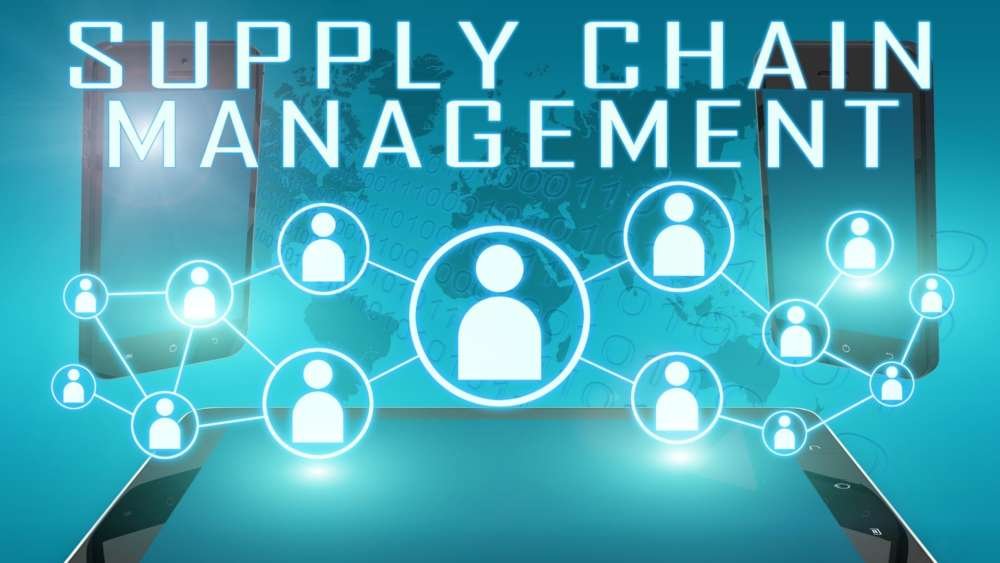The impact and potential of AI in supply chain management
Published by linker 5
Posted on July 8, 2020
5 min readLast updated: January 21, 2026

Published by linker 5
Posted on July 8, 2020
5 min readLast updated: January 21, 2026

By Philip Ashton, CEO of 7bridges
Supply chains are changing all the time, and by their nature tend to be a complex combination of processes and third parties. But as the fourth industrial revolution takes shape, supply chains are developing and advancing rapidly.
Amazon has led the way for consumer-facing logistics, integrating technology at every stage of their supply chains and making one-day deliveries the market standard. All other businesses, large or small, B2B or consumer-facing, are now having to compete with this benchmark of convenience that has been set.
To make matters worse, this year has seen the single largest disruption to the international supply chain in living memory. The shock caused by the global COVID-19 pandemic has affected the whole supply chain, from manufacturers to consumers, and has resulted in the closure of warehouses, price hikes and missed deliveries.
As businesses react and are required to pivot quickly, there is a growing argument for experimenting with technology such as AI to help navigate and manage the increased complexity in supply chains. With entire industries looking for solutions to supply chain disruption, there are several key benefits to AI adoption:
Resilience
The COVID-19 pandemic is unprecedented in modern times, but smaller shocks to supply chains happen regularly, particularly for those that cross international borders. For example, last year’s discussion of choice, Brexit, will cause disruption to supply chains across the continent, and the implementation of any new processes, such as new customs paperwork or the application of trade tariffs, will slow deliveries and increase costs.
Integrating AI allows businesses to react autonomously to temporary market shifts or long-term disruption in the supply chain to ensure deliveries are always made on time, and in full. As macro events occur, the technology can automatically reroute shipments to take conditions into account, removing the need for cumbersome manual calculations and processes. This agility can keep operations running and scaling as competitors falter, saving on direct costs and future proofing the business
COVID-19 has undoubtedly alerted businesses to the realities of disaster planning – now is the time to build in extra layers of fail-safes to ensure that operations can continue through the next ‘worst case scenario’.
Efficiency
Any business involved in direct-to-consumer deliveries needs to constantly upgrade and improve their logistics operations. Next-day or even same-day deliveries are now expected as a minimum; consumer studies have found that shipping dates affect purchasing decisions for more than 90 percent of shoppers. In addition, more than a quarter of online shoppers will abandon their basket at checkout if delivery is too slow.
In an increasingly crowded and competitive ecommerce marketplace, logistics failures or slow service could cause significant business harm, as consumers take their custom to more responsive suppliers. The primary way that businesses can ensure their deliveries are always being completed in the fastest and most efficient way possible is to implement an AI-based solution that considers historic and real time service performance.
Flexibility
One of the most significant advantages of utilising artificial intelligence within logistics is that it is not rules-based, but optimises within a set of constraints. As a result, it does not have to be reprogrammed – instead it reacts and adapts to any new environment or condition, making any AI solution innately flexible and scalable. For businesses looking to grow and gain market share, this is incredibly valuable.
AI allows businesses to predict orders and intelligently distribute stock closer to the customer, before they’ve even ordered. By calculating all the possible permutations to the large number of complex variables involved in sending a shipment, AI can optimise the process for each order within a set of customer or business constraints, and thus allowing individual flexibility on a large scale.
In addition, AI can incorporate ever-changing manufacturing schedules when deciding when and how to distribute stock directly from the manufacturer to warehouses, stores or consumers, allowing flexibility if and when there are disruptions higher up the chain.
Cost
As with other automation technologies, AI can take responsibility for the manual, menial processes and free up humans to add more value by focusing on the strategy and guide rails for the technology. AI is also able to process larger volumes of data and permutations far beyond human capability, enabling much better and considered decisions being made. With AI doing the ‘heavy lifting’, organisations are able to reduce direct costs by 50%.
For example, humans can set rules on how to fulfil one order based on storage, handling and transportation costs. AI, on the other hand, will consider how to fulfil the same order but in the context of potentially hundreds of thousands of other orders. It will take into account stock and replenishment requirements, fulfilment location, pick and pack load and consolidation opportunities across single and multiple sites, while adapting to near real-time service levels of each provider and relevant surcharges. The benefits come from making these numerous micro, contextual and near real-time decisions that reduce waste on a large scale in aggregate.
Artificial intelligence will quickly become a central part of all supply chain management systems, both for large, international enterprises and smaller direct-to-consumer operations. COVID-19 has created unparalleled challenges for logistics teams, but has also presented the industry with an opportunity to safeguard supply chains and ensure that they are ready for whatever the future holds.
Explore more articles in the Technology category











